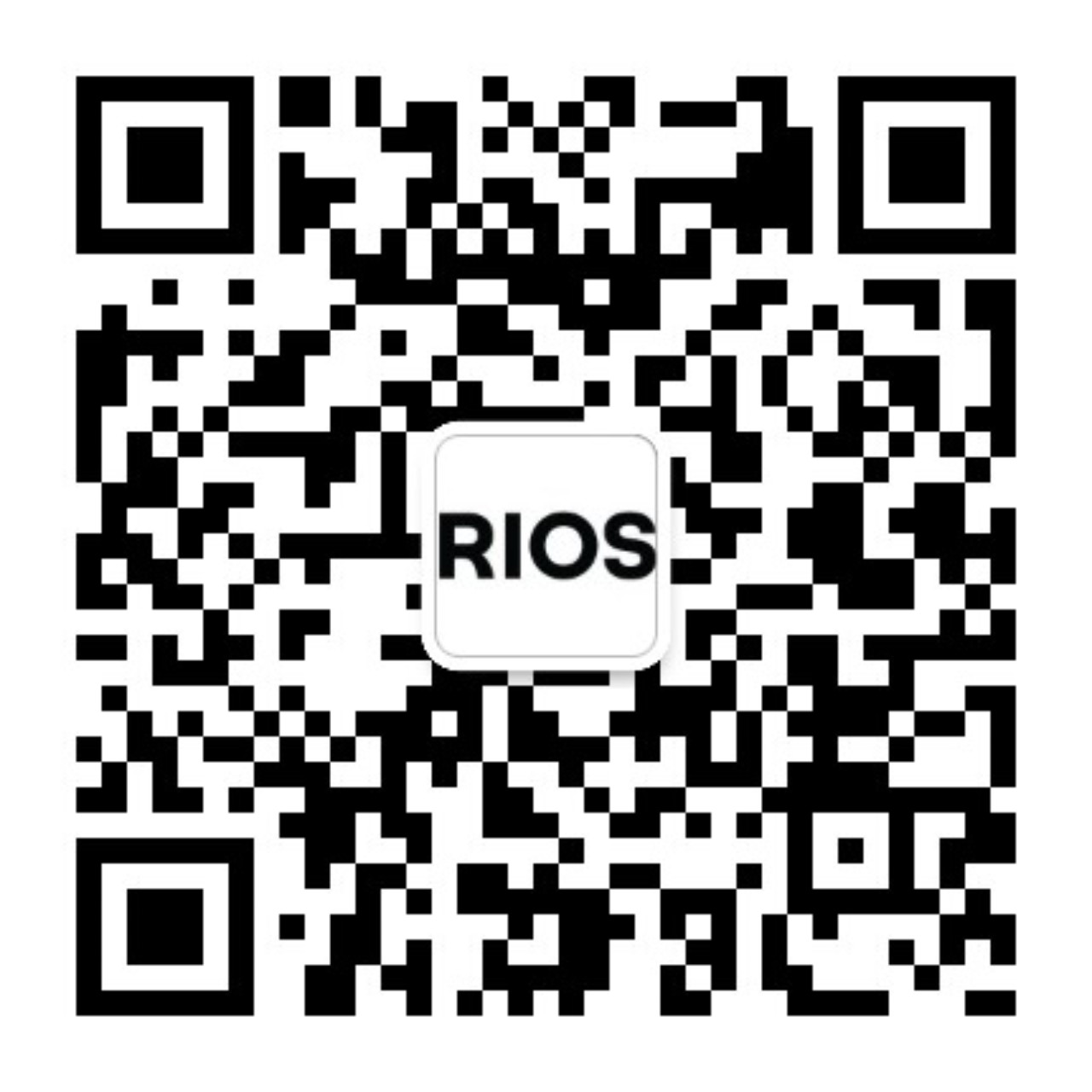We believe that designing for diversity, equity, and inclusion starts with how we operate as an office. That is why we adopted the JUST framework.
Our Commitment
At RIOS, we think about our office operations exactly how we design our projects. Our longtime commitment to building a practice that is fair, equitable, and diverse is what brought us to receive a JUST label from the International Living Future Institute. The JUST program provides us with key metrics to understand how we are doing in diversity, equity, inclusion (DEI), and social justice issues. Through rigorous analyses and inclusive processes, we strive to create places that celebrate an equitable human experience.
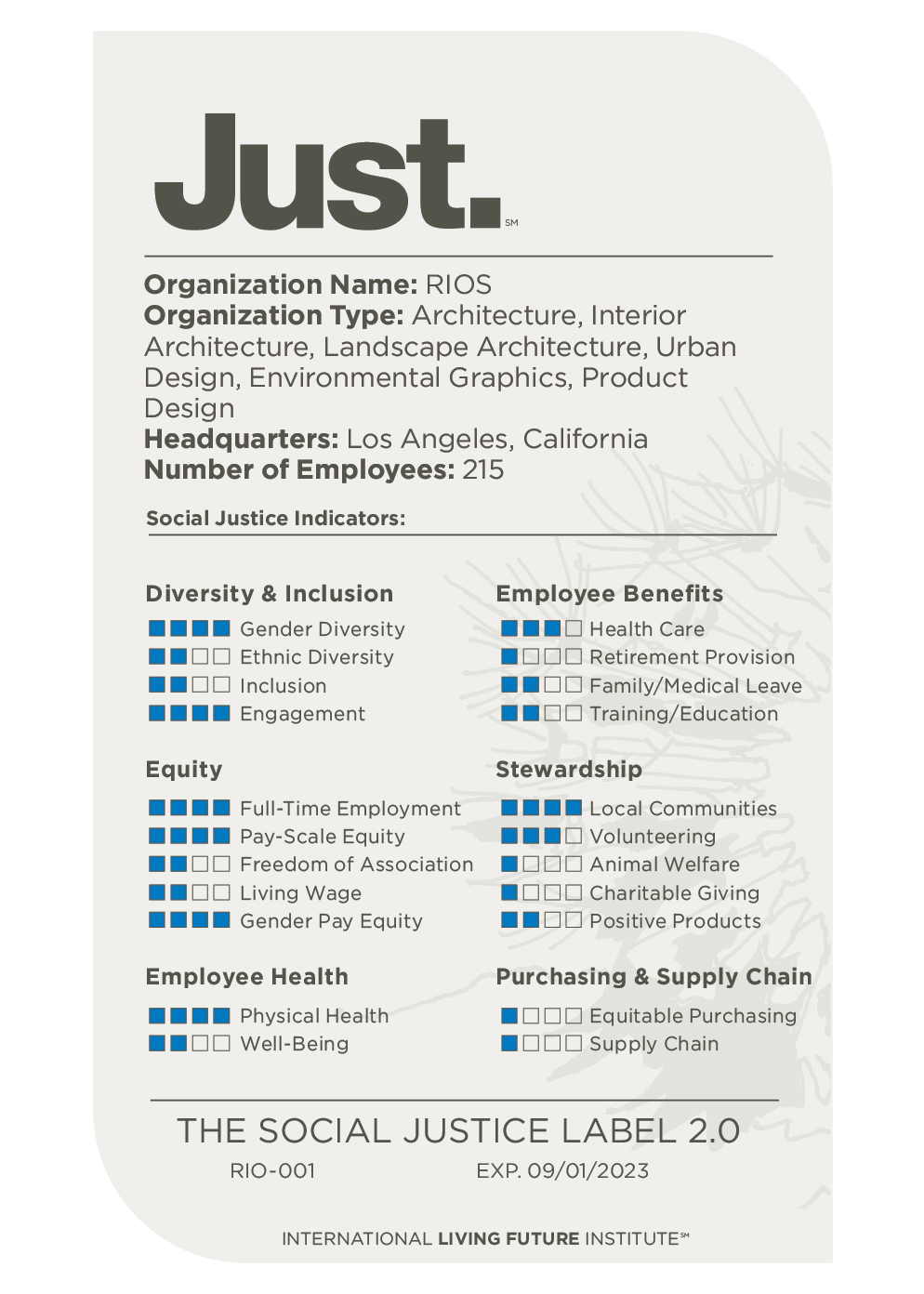
Why JUST?
To guide us towards a culture of action, we organized a group dedicated to creating a future that is more diverse and inclusive. The Social Impact Initiative (SII) underscores our ability as designers to prioritize social, environmental, and spatial justice in our work and daily operations.
The design field has historically excluded Black, Brown, and Indigenous people. We believe it is crucial that we find ways to correct this by creating partnerships and inclusive opportunities. Although studies argue that stronger DEI can increase financial performance, we are specifically interested in how DEI at RIOS can enlighten our design perspective.
We see incredible opportunities in creating partnerships with historically excluded communities to understand how we can make our projects more inclusive and positive. By celebrating our differences and authentically engaging with people of all backgrounds, we can inspire and create impactful designs. This proposition begins with how we operate as an office, and that is why JUST is such a powerful tool.
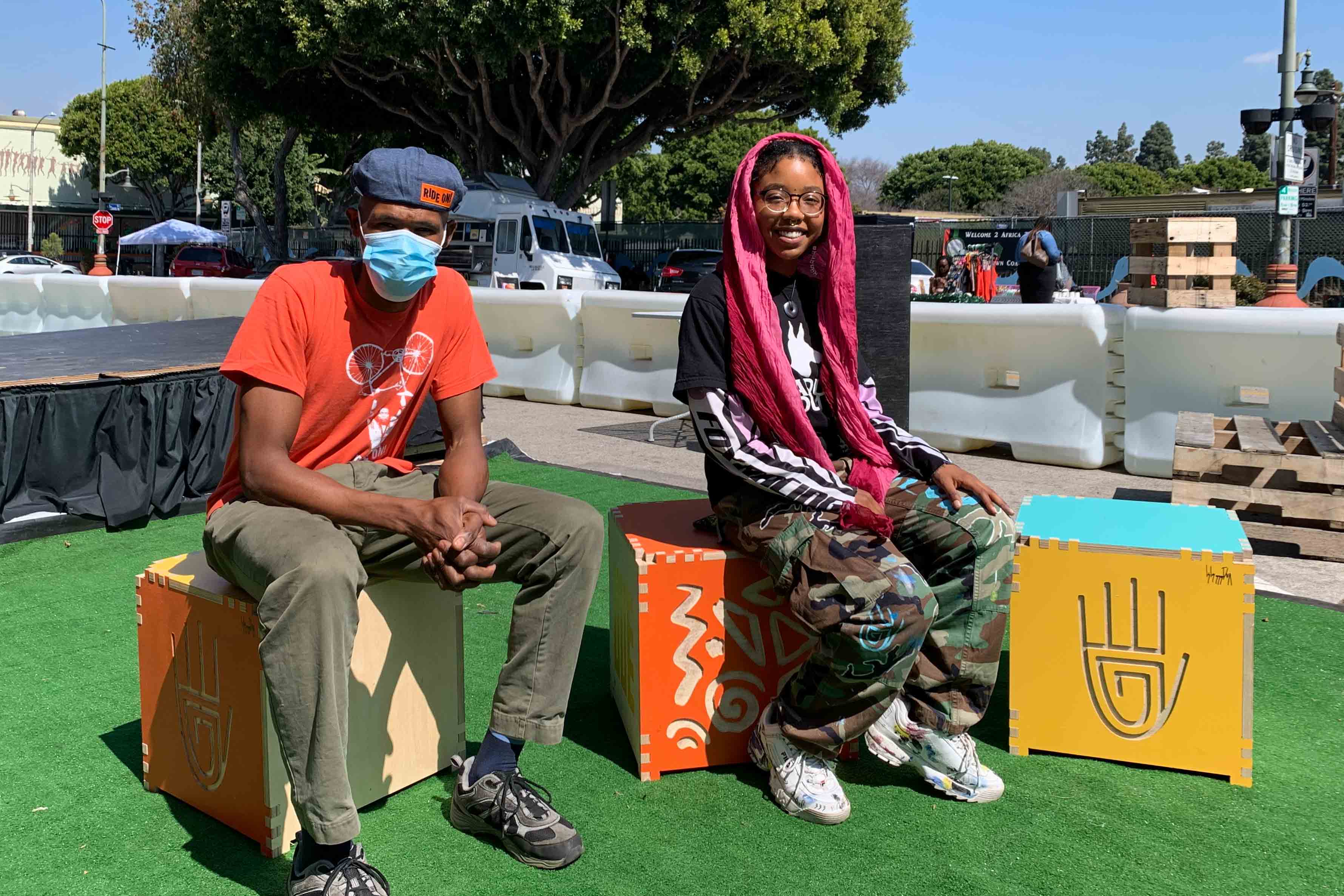
RIOS transforms the street into a public space for the Leimert Park community in Los Angeles, CA
Diversity & Inclusion
Our main office is in Los Angeles, CA, where 72% of the population is consists of people of color. Through an internal survey prompted by JUST, we learned that RIOS staff is currently comprised of 45.7% people of color while our senior leadership is 44%. In comparison to LA’s demographics, we recognize our office demographics do not accurately represent the community for which we design. According to an AIA Demographics report, this is a nationwide industry trend, where people of color make up 17.4% of AIA’s membership.
JUST helps us understand our office demographics, and with this knowledge, we are now better equipped to make our office a more inclusive and diverse place. SII has already given us an incredible perspective in how we shape our project teams and design for social equity.
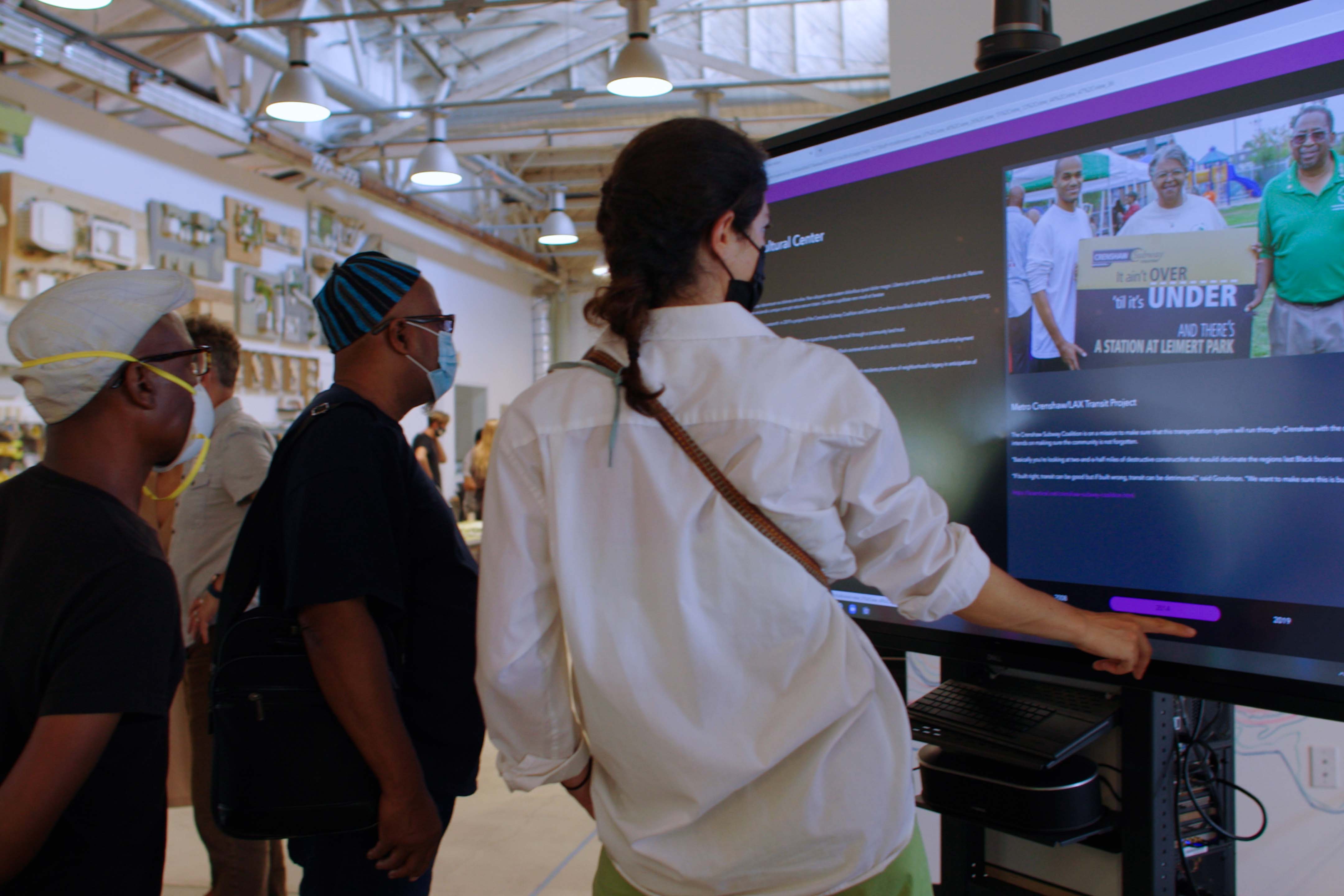
Open House at RIOS hosted by SII
Employee Benefits
The JUST program is a great way to start conversations that lead to a positive impact. For instance, family and medical leave benefits vary by state, but many benefits do not adequately support those who are disabled or sick, and they especially do not support childcare or the first stages of parenthood. Lack of paid family leave disproportionately affects women who often take the major responsibility of childcare. Previously, RIOS did not offer any additional family and medical leave outside of federal and state support. JUST helped open dialogue within our office, leading us to institute a new policy for paid family and medical leave as a part of our employee benefits package. We hope this newly enacted practice is one of many steps that will support everyone in a prosperous career and life.
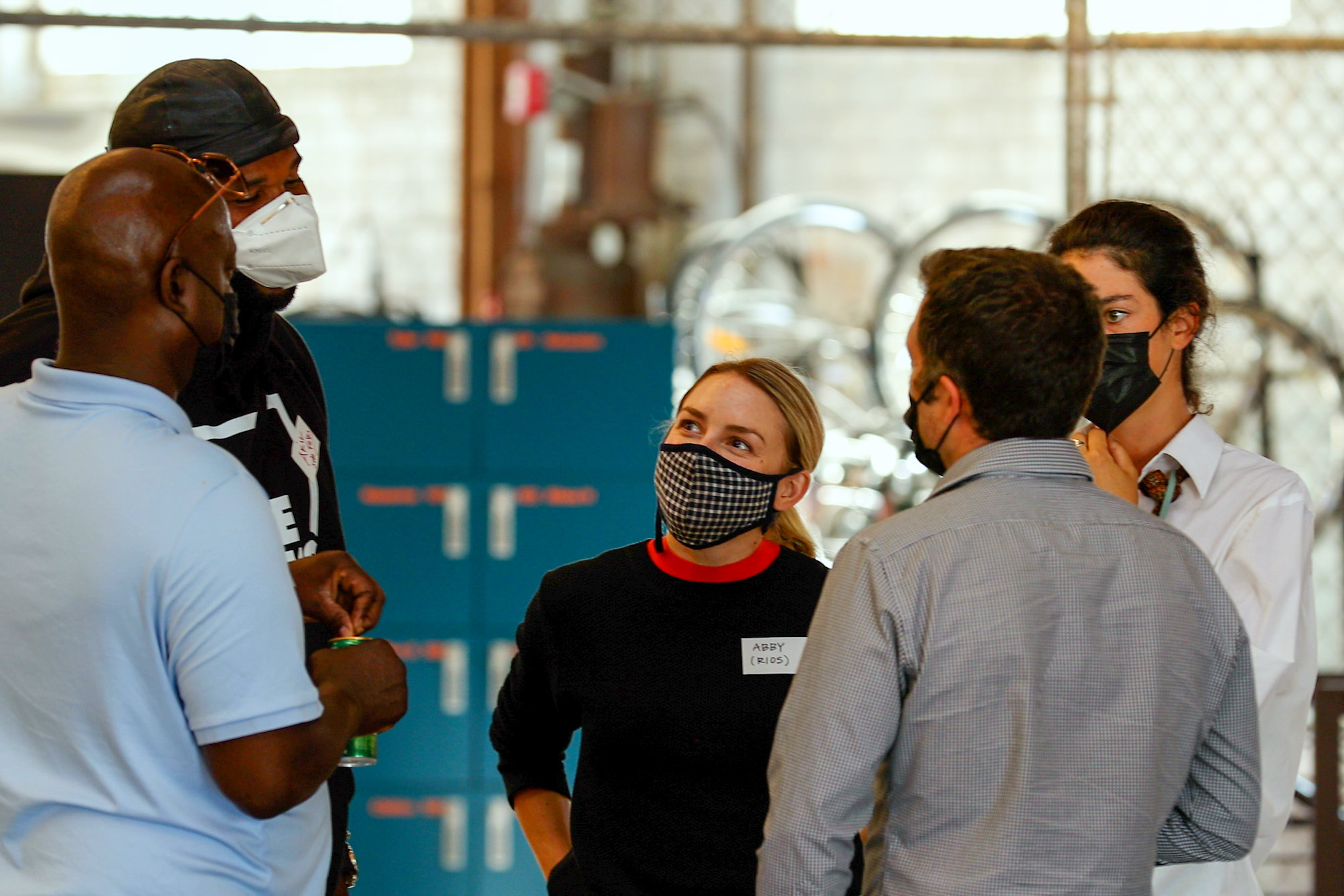
Open House at RIOS hosted by SII
Equity
Through JUST, we learned more about the importance of implementing living wages to create an equal playing field. Although we already pay a living wage to all our employees, and our internship wage was higher than many other internships in LA, the JUST process helped us discover that our interns were in fact being paid just shy of the living wage in LA, according to the MIT Living Wage Calculator.
When offices pay interns below the living wage, this can drive down the entire market. In a city as expensive as LA, this results in people with more affluent backgrounds being more likely to accept an internship below the living wage. This adds another barrier to entry for those who have faced socioeconomic inequality or discrimination and do not have the financial backing to take a low-wage position after graduation.
JUST gave us the tools to set a living wage for all our staff by helping us understand the cost of living in our city. We hope more firms will follow suit, making our industry a more inclusive place and supporting people entering the design field, regardless of financial background.
Participating in the JUST program was like welcoming another viewpoint into our office, making room for conversations that were important to revisit. JUST allows offices to build on the areas they excel in while learning what can vastly improve office operations towards diversity, equity, and inclusion.
Collecting this information about our office has allowed us to take more deliberate steps towards a socially conscious workplace with positive impacts in design for everyone. For us at RIOS, we feel like this is just the beginning towards a better future.

